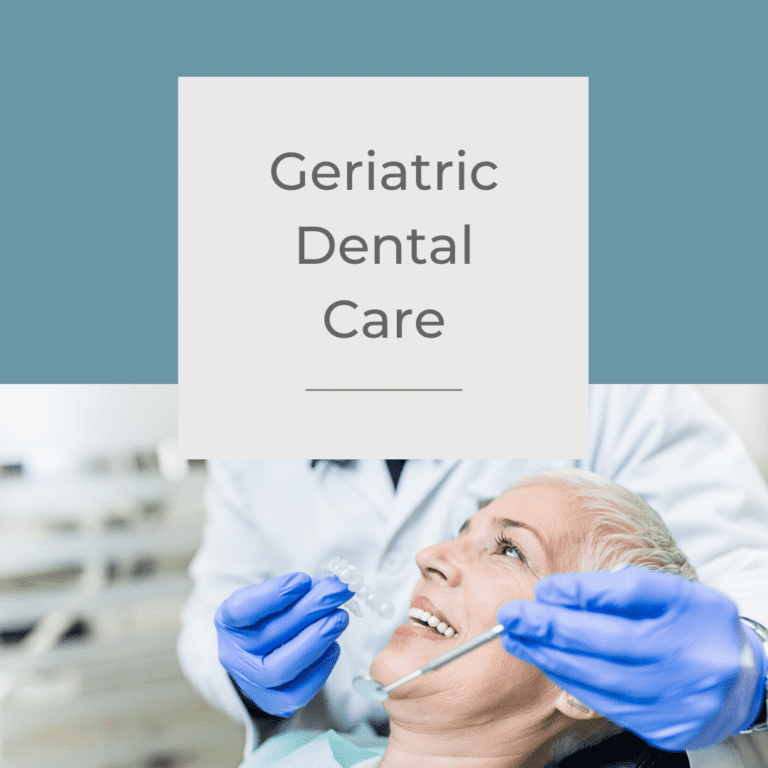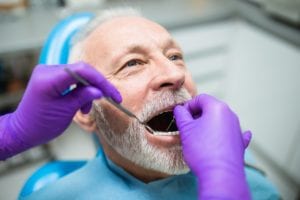Geriatric Dental Care

Age plays an active role in many parts of your life, including your health. Just as your age can increase your risk of developing certain medical conditions, your age also affects your oral health as well. In fact, our dental needs change slightly as we age. For example, a child’s dental needs may be centered around not losing their primary teeth too soon, while people in their late teens and early twenties are likely to worry about wisdom teeth. As the average life expectancy continues to rise, there is now a need for geriatric dental care.
Geriatric dental care is specialized dental care for seniors over the age of 65. Although geriatric dental care promotes generalized teeth cleanings and dental checkups, there are a few factors that set it apart from dental care for other ages. Here are some of the things that geriatric dental care encompasses:
Discussing Overall Health
You may or may not be aware of the fact that there is a close relationship between oral and overall health. In fact, certain medical conditions have been found to increase the risk of certain dental conditions and vice versa. Therefore, if an individual has been diagnosed with medical conditions such as diabetes, GERD, Alzheimer’s, Parkinson’s, hypertension, or others, then they may also be at an increased risk for developing future dental issues.
Checking Medication Lists
Another thing that a geriatric dentist will look at in regards to their patients are their list of medications. Certain medications can cause side effects that are detrimental to oral health, including dry mouth. If a medication causes dry mouth it prevents an individual from producing enough saliva, which makes it more likely that tooth decay can occur. The American Dental Association notes that 30% of adults over the age of 65 and 40% of adults older than 80 suffer from dry mouth.

Risk Assessment
Along with age, there are certain factors that can increase the risk of developing dental issues such as gum disease or tooth decay. For example, there are various types of impairments that can affect older adults such as physical, sensory, and cognitive. These impairments can make it difficult to maintain proper oral hygiene, which can elevate the risk of dental issues.
Diagnosing and Treating Gum Disease
Periodontitis is an advanced form of gum disease that is very common in older adults. In fact, the Centers for Disease Control and Prevention note that as many as 70.1% of adults over the age of 65 are affected by some form of gum disease. Since gum disease can eventually result in loose or missing teeth, dentists with geriatric patients often recommend treating gum disease in its early stages before it advances. One common way dentists treat gum disease is by performing a special teeth cleaning that removes plaque from along the gum line. Any exposed tooth roots are then smoothed out as a way to encourage the gum tissue to attach to the teeth.
Replacing Old Dental Restorations
Dental restorations have varying lifespans depending on the type of restoration and the material it is made from. The average lifespan of most dental restorations ranges from about 5-15 years. As dental restorations age, they can become loose, develop leaks, or even fall out. Since more adults are outliving their restorations, this means that these old restorations will need to be removed and replaced with a new restoration.






Recent Comments